Zimbabwe begins inventory of historical sites in Mozambique
Mozambique: President, main parties to sign accord to halt post-election crisis

File photo: Noticias
Mozambique’s president and the country’s main political parties will sign an agreement in Maputo on Monday on the terms for state reforms, as part of the political dialogue to end the country’s post-election crisis.
The ceremony will take place at the Joaquim Chissano Conference Centre, starting at 15:00 (two hours earlier in Lisbon). In addition to the parties with parliamentary seats, namely the Optimistic People for the Development of Mozambique (Podemos), the Mozambican National Resistance (Renamo) and the Democratic Movement of Mozambique (MDM), the agreement will also be signed by the extra-parliamentary Nova Democracia, in a dialogue that at the last meeting included party formations with representation in the provincial and municipal assemblies.
Although the Mozambican head of state has several times promised to “widen the dialogue table” to “various segments of society”, one of the main criticisms raised by academics and analysts continues to be the absence of Venâncio Mondlane, the second most voted in the last elections according to the Constitutional Council and who led the worst contestation of the results the country has seen since the first elections in 1994.
“We have reached a 100% consensus on the content of the document,” declared the President of Mozambique, Daniel Chapo, on 27 February, the last dialogue session.
On 19 February, after another session of talks, Chapo acknowledged the possibility of a Constitutional review as part of the dialogue, pointing to changes to the electoral law as the priority.
“There are other important issues that could lead to [a] constitutional review,” Chapo emphasised at the time.
Since October, Mozambique has been experiencing severe social unrest, with demonstrations and stoppages called by former presidential candidate Venâncio Mondlane, who rejects the election results of 9 October, which gave victory to Daniel Chapo.
The protests, now on a smaller scale, have occurred in different parts of the country. In addition to contesting the results, people are complaining about the rising cost of living and other social problems.
Since October, at least 353 people have died, including around two dozen minors, and around 3,500 have been injured during the protests, according to the Decide electoral platform, a non-governmental organisation that monitors electoral processes.
Mozambique’s government confirmed at least 80 deaths, as well as the destruction of 1,677 commercial establishments, 177 schools and 23 health centres during the demonstrations.



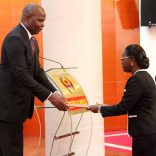
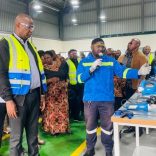
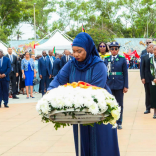
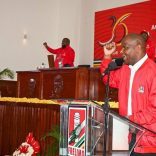
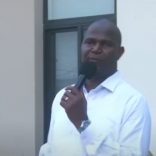





Leave a Reply
Be the First to Comment!
You must be logged in to post a comment.
You must be logged in to post a comment.